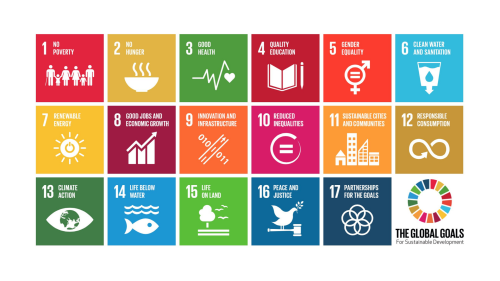Faculty Project:
-
The first step toward solving problems is to understand the universe in which they operate. Faculty projects are an opportunity to experience academic research and partnership development in a participatory manner under the guidance of an accomplished academic, thereby improving your ability to think critically and make evidence-based decisions.
-
During your faculty project, you will collaborate with one or more world-class researchers to understand why they are asking a question, why they are using their selected research methods, and how they are interpreting results.
-
The domain-specific skills and knowledge you develop in your faculty projects will be used to help form complementary teams for your impact initiatives.
Impact Initiative:
- Impact initiatives entail working in small groups to
a) research a challenge of Fellows' choosing,
b) design a solution to this challenge, and
c) attempt to implement the solution within the boundaries of the program's assigned hours. -
Throughout Fellows' impact initiatives, they will identify, reflect on and improve specific managerial competencies to support their future aspirations.
IMSF Course:
- IMSF course:
The IMSF course provides a bridging link between the work Fellows do on their faculty projects and the work they do on their impact initiatives. It provides a foundational toolkit for creating impact regardless of career aspirations while challenging Fellows to reflect on their professional identity, personal goals and managerial capacities.
FAQ
How do I join the Integrated Management Student Fellowship?
Students must first apply and be accepted to the IMSF in order to participate in the IMSF. Once accepted in the Fellowship, students will be registered in BUSA 451D1/D2 by the BCom office. Applications for the IMSF generally open end February with a list of available faculty projects. Students must apply by mid-March for an opportunity to join the IMSF in September. The application for the Fellowship will be available through the IMSF webpage once applications open in February.
Can undergraduate students in any year of study apply to take part in the IMSF?
The IMSF, and therefore BUSA 451D1/ D2, is open to undergraduate students from U1(returning) to U4. The Fellowship is open to all Desautels Majors/Concentrations as well as other Faculties. Students can apply as early as their first year of studies.
What is the time commitment for this Fellowship?
The workload of the Fellowship each semester is designed to be equivalent to a typical 3-credit BCom course. Each semester, you will be expected to devote approx. 60 hours to your faculty project and approx. 60 hours to the impact initiative and course combined (which will include class time, readings, course assignments and your group’s impact initiative). In total, you will spend approx. 120 hours in the fall semester and approx. 120 hours in the winter semester, which is the expected workload of a typical 6-credit course.
Note: There are no midterms or finals.
This course is not pass/fail. You will receive separate grades each semester that reflect the quality of work, reflection, and competency development in faculty project & impact initiative within the Fellowship.
What are the faculty projects and what kind of work can I expect to do?
Faculty projects are of two types – academic research and partnership development.
- Academic research usually entails literature review, data collection, conducting interviews, analysis, interpretation, and contributing to an academic research paper or advancing management research.
- Partnership development can include mapping and outreach to stakeholders, designing and conducting interviews, creating strategies, designing prototypes, and supporting faculty in advisory activities and advancing Desautels community engagement efforts. The goals and tasks of each faculty project are different.
What are some examples of impact initiatives?
The impact initiatives you and your group work on can vary considerably. Here are some examples of the shape they could take.
- Social entrepreneurship
- Awareness campaigns
- Websites/applications/tech solutions
- Fundraising
- Models for conservation
- Educational programs
- Citizen participation workshops
- e-marketplace
- Training programs
- Knowledge mobilization
- Blockchain models in disaster scenarios
- Simulation designs
- Public policy
- Mass mobilization and civic engagement
- Demographic empowerment & advocacy
Why are the UN Sustainable Development Goals (SDGs) the overarching framework for this Fellowship?
The Sustainable Development Goals are a collection of 17 global goals designed to be a “blueprint to achieve a better and more sustainable future for all.” The SDGs, set in 2015 by the United Nations General Assembly and intended to be achieved by the year 2030, is part of UN Resolution 70/1, the 2030 Agenda.

The 17 goals extend across national boundaries and have applications across sectors, industries, and disciplines. Whether your desired impact as a manager relates to economic development, innovation, social progress, governance or sustainable development, the SDG framework is relevant.

Learn more about the 17 Sustainable Development Goals (SDGs) here.

